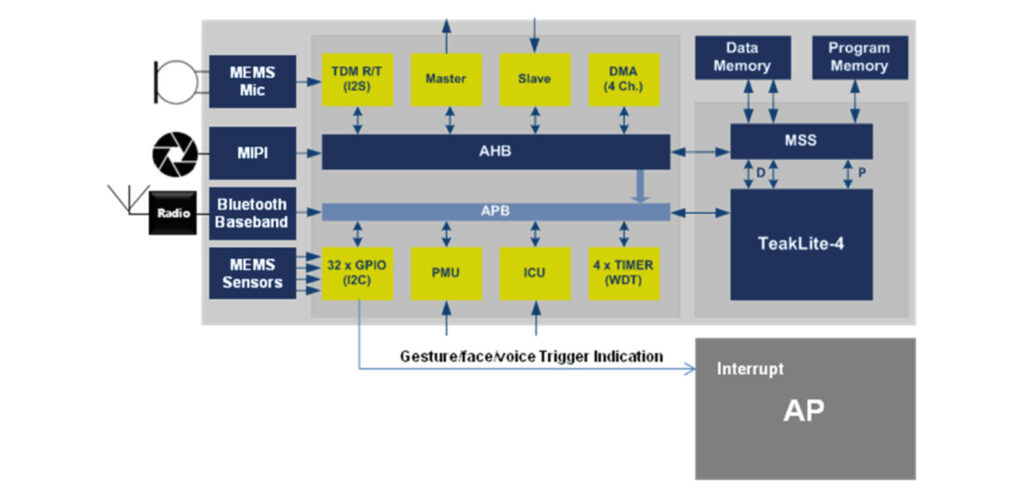Maryland-based CEVA, a licensor of wireless connectivity and smart sensing technologies and integrated IP solutions, has announced that its SensPro sensor hub DSP IP has achieved Automotive Safety Integrity Level (ASIL) B random fault and ASIL D systemic fault-compliant certification.
The ISO 26262-compliant functional safety standard’s ASIL certification is essential for automotive systems-on-chip (SoCs) used in safety critical applications such as autonomous driving and advanced driver assistance systems (ADAS) applications. The SensPro sensor hub DSP is designed to process and fuse data from multiple sensors, including cameras, radar and lidar, in a highly power-efficient manner. It also offers a combination of high performance single and half precision floating-point math for powertrain and radar applications along with a large amount of 8- and 16-bit parallel processing capacity required for deep neural network (DNN) inference processing.
It is accompanied by an advanced set of software libraries, dedicated instruction sets (ISA) and development tools to expedite system design for automotive applications. SensPro’s ASIL certification is based on SGS-TÜV Saar’s comprehensive audit and assessment of the functional safety development flow in accordance with the ISO 26262:2018 standard and can be found on the SGS-TÜV website.
Ran Snir, VP and general manager of the Vision Business Unit at CEVA, commented. “CEVA has been committed to providing high-performance DSPs and comprehensive SDKs for automotive applications for more than a decade. We are pleased to achieve functional safety certification for our latest SensPro sensor hub DSPs in collaboration with SGS-TÜV Saar.
“The scalable SensPro architecture is ideal for increasingly sophisticated ADAS processors that handle and fuse data from a variety of vehicle sensors and having it certified for these functions enables designers to develop performance-leading ISO 26262-compliant automotive SoCs.”


